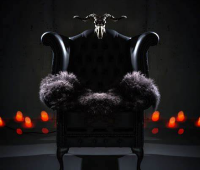Even Fog of War doesn't really solve this. I don't think it is solveable: Players don't always think tactically, and ultimately, they're playing to have fun and everyone's definition of that is different. Some want to move cautiously, others want to explore "right now", and some really don't want to be the ones close to an encounter and will lag behind the party if they can. But you can modify player behavior some. I play 5E with Fog of War rather than Dynamic Lighting, in part to give me more control over presentation, and two of my players just love to play "rearguard" so much (avoiding the fight) that they can either/both become separated. And one is playing an impulsive character who tends to run ahead when the others are debating what to do. (good RP, terrible tactics). While I could stop that by not revealing, my view is that I'm not there to tell him 'no', I'm there to referee the results of his decisions, good or bad. I try to never take away the decision-making from the player, that's a big part of the fun of a D&D game. I have used the ramped-up-encounter bit. Once I designed a falling wall trap, which cut the lagging player (just one) off from the party. He got to listen while they had fun with a puzzle in the next room (it took them a while, and one encounter, to find the release for the wall). While he did, he wandered into a room full of zombies (an encounter designed for the full party) and ended up running out of the dungeon. I didn't really count that a success, but it did underscore why splitting the party was bad. But my real solution came after reading Keith Amman's Live to Tell The Tale party tactics book. I boiled that down to a small set of handouts stressing how PCs could work together tactically to augment their abilities (eg, PC A knocks an enemy prone, PC B with the big sword gets Advantage on their turn). After a few games introducing these, along with some suggestions to each player on how they could best apply their abilities in concert with the others to deal more damage more quickly (something near and dear to most players), things did improve. They thought about encounters more, made better uses of their abilities, and sometimes even managed combo moves (I also had to ramp up encounter difficulty to match them). And to do that, they had to stick together better, and function more as a cooperative team. I've still got players who lag at times, and the other who periodically runs ahead and triggers ambushes all by himself. You can't really change how someone fundamentally wants to play their PC. But you can tone it down some, if you can get them to really think about alternatives.








